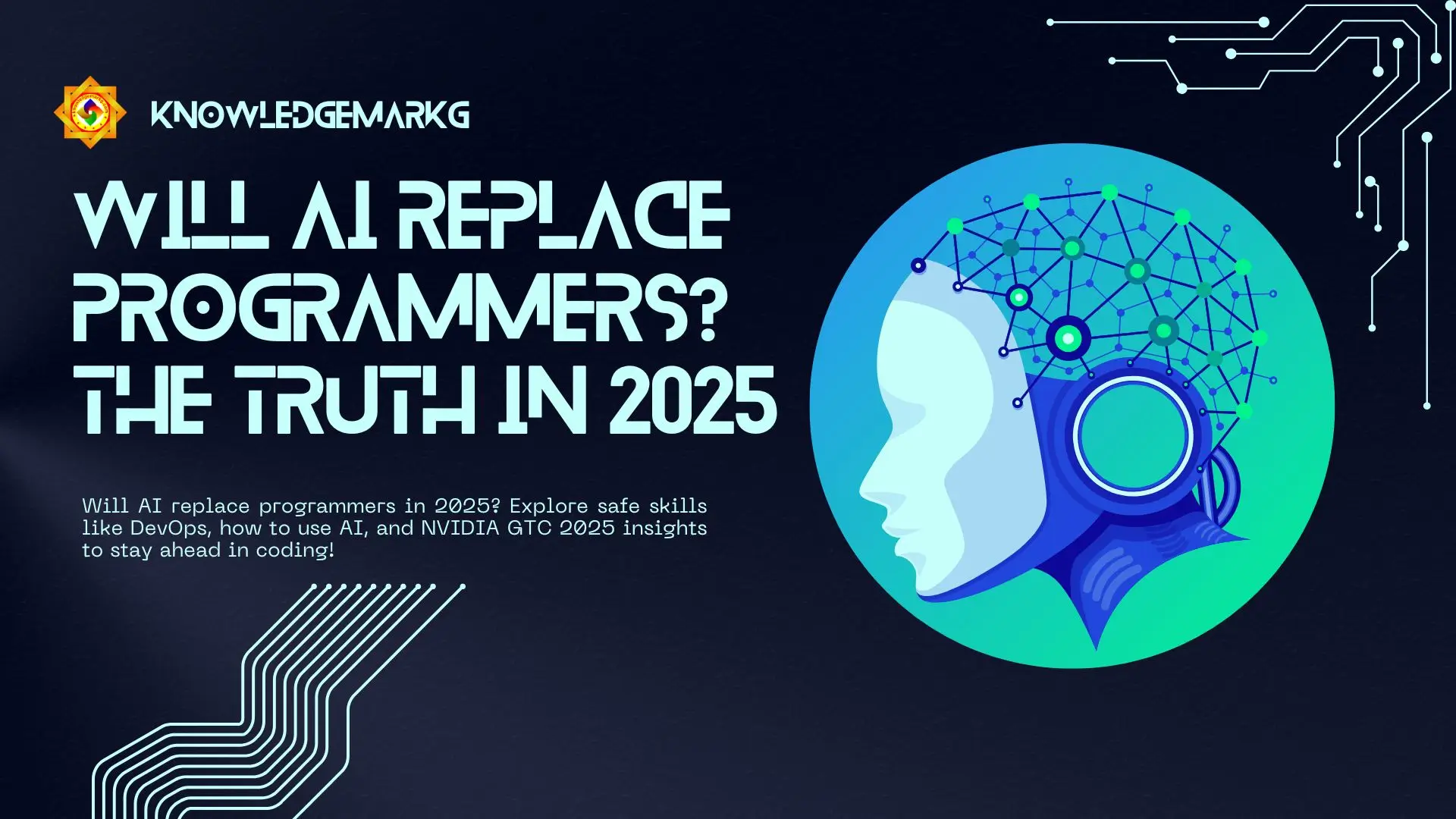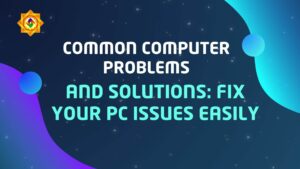Introduction: The Big Question About AI and Programming Jobs Will AI replace programmers
The question “Will AI replace programmers?” isn’t just a hot topic—it’s a career-defining concern for millions. With AI tools like ChatGPT, DeepSeek, and GitHub Copilot churning out code faster than ever, some fear coding jobs are doomed. Others see opportunity. If this debate makes you uneasy, you can skip ahead—but if you’re here to understand the future, buckle up. We’ll explore skills AI can’t touch, jobs it might take, and how to future-proof your career in 2025. No fear-mongering here—just facts, industry insights, and practical steps forward, all rooted in the reality of today, February 22, 2025.
The Rapid Rise of AI in 2025
AI’s growth in 2025 is jaw-dropping. Open AI slashed model prices, DeepSeek’s innovations went free, and frameworks like LLaMA got open-sourced. This isn’t just tech hype—it’s a revolution moving faster than the internet’s early days. Accessibility is at an all-time high, with startups and solo devs alike tapping AI’s power. But what do the big players say?
- Stability AI CEO: “This year, coding as we know it fades in five years.”
- Mark Zuckerberg: “By late 2025, our AI at Meta will mimic a mid-level engineer, writing reliable code.”
- Salesforce CEO: “No new software engineer hires next year—AI’s stepping in.”
- NVIDIA’s Jensen Huang: “IT departments will morph into HR for AI agents, managing their ‘careers.’”
These predictions paint a future where AI writes code, debugs apps, and even designs systems. But dig deeper: NVIDIA’s pushing AI chips, Meta’s betting on AI-driven platforms, and Salesforce wants efficiency. Their optimism fuels their business—yet they’re still hiring humans. Why? Let’s find out.
Should You Fear AI Taking Your Job?
Relax—AI isn’t the job apocalypse. Yes, these leaders know more than us. They’ve got data, vision, and stakes in AI’s success. But their rosy forecasts aren’t the full story. Look at their career pages in 2025: Open AI seeks front-end devs to refine AI interfaces. Meta hires backend engineers for infrastructure. NVIDIA recruits designers for GPU tools. These companies aren’t ditching humans—they’re hiring smarter ones.
Here’s the catch: AI excels at what it’s trained on—patterns, repetition, basics. It flounders when innovation, context, or chaos enters the picture. Plus, history shows tech predictions often overshoot. Remember self-driving cars by 2020? Still waiting. AI’s rise is real, but it’s not flawless. You’ve got room to adapt—and win.
Skills AI Can’t Replace (Safe Skills for Programmers)

AI’s a beast at routine tasks, but it’s no match for human brilliance in these areas:
- DevOps Mastery: Spinning up a VPS, configuring CI/CD pipelines, or troubleshooting a live server crash? AI’s clueless. Tools like Docker, Kubernetes, and AWS demand human finesse. Example: When a production database lags, AI can’t intuit the fix—you can.
- Creative Innovation: AI remixes existing solutions—it doesn’t invent. Think of the first iPhone’s UI or blockchain’s genesis. Humans dream up the “never before.” In 2025, companies crave coders who ideate beyond AI’s dataset.
- Design (UI/UX & Hardware): AI can churn out mockups, but it lacks taste. Ever seen an AI-designed logo that wows? Me neither. Hardware’s worse—designing a GPU or IoT device needs human hands and minds.
- Complex Problem-Solving: Large codebases with tangled dependencies? AI generates spaghetti code or misses the bug entirely. A seasoned dev untangles it with logic and experience.
- Top 10% Expertise: Even in “replaceable” fields like front-end, the best humans shine. Open AI hires front-end pros to train models—because AI’s output needs human polish.
Real-world proof: I once tasked AI with a custom React dashboard. It spat out functional code—ugly, unoptimized, and rigid. I rewrote 70% to make it scalable. Moral? Be the human who elevates AI’s work.
Skills AI Might Replace (Unsafe Skills to Watch)
Some roles are fading fast as AI takes over:
- Language Translators: Tools like Google Translate and DeepL have slashed demand for human translators.
- Data Entry Clerks: OCR and automation handle spreadsheets and forms—humans need not apply.
- Basic Front-End Coding: Cookie-cutter landing pages or Bootstrap layouts? AI pumps them out in seconds via tools like Framer or Wix AI.
- Routine Debugging: Spotting typos or fixing simple loops—AI’s got that locked with linting tools and auto-suggestions.
- Junior-Level Grunt Work: Writing boilerplate APIs or CRUD apps? AI agents like GitHub Copilot do it cheaper and faster.
Stuck in these zones? You’re vulnerable—unless you level up. Companies now expect juniors to bring more than basics.
The Real Winner: Humans Who Use AI
Jensen Huang’s wisdom rings true: “AI won’t steal your job—the coder using AI will.” Imagine two devs in 2025:
- Dev A: Ignores AI, and grinds out every line manually. Slow and outdated.
- Dev B: Uses AI to draft 80% of a project, then optimizes it with human skill. Fast and hired.
Companies crave Dev B. Why nurture a newbie for years when AI can handle the basics, and a skilled human can leap to value? Example: A startup I know cut its team from 10 to 4 by pairing AI with top devs. Efficiency soared—humans stayed.
My Experience: AI Helps, But It’s Not Perfect
I lean on AI daily—ChatGPT, Grok, you name it. Here’s the breakdown:
- 80% of AI Code: Clunky or “just works.” A recent Flask API it wrote had redundant loops—I slashed its runtime by 40% with a human tweak.
- 20% of AI Code: Gold. Need a quick regex or a math function? AI nails it, saving me hours.
Limits? AI flops on new frameworks (e.g., a hypothetical React v16). It struggles with big codebases—once, it “fixed” a bug by breaking three features. And don’t get me started on prompts—it took 10 tries to get a decent Node.js script. AI’s a co-pilot, not a captain.
What’s Next? The NVIDIA GTC 2025 Conference
Mark your calendars: NVIDIA’s GTC (March 17-21, 2025) is your ticket to AI’s frontier. I’m attending in-person—virtual sessions are free via [insert link]. Highlights:
- Jensen Huang’s Keynote: Big-picture AI trends—always a mind-blower.
- “Build Agentic AI with LLMs”: Hands-on tips for smart AI apps.
- “Prompt Engineering for LLM Apps”: Master AI’s language—crucial for all devs.
- “Synthetic Data for Autonomous Driving”: Cutting-edge stuff I’m geeked for.
Sessions run in PDT—convert to IST and register. Pro tip: Slots fill fast, especially paid workshops. It’s a chance to see where AI’s headed and skill up accordingly.
How to Thrive in 2025: Actionable Steps
Don’t just read—act. Here’s your game plan:
- Learn AI Tools: Master ChatGPT, Copilot, or Grok. Automate the boring stuff.
- Upskill Fast: Dive into DevOps (try a Kubernetes course), design, or advanced algorithms.
- Build Projects: Create a unique app—AI can’t copy what’s never existed.
- Network: GTC’s a start—connect with pros who’ve adapted.
- Stay Curious: Tech shifts daily. Read blogs, watch keynotes, and experiment.
Example: A friend learned prompt engineering in a month. Now he’s the go-to guy for AI-driven prototypes at his firm: small moves, big wins.
The Future: No One Knows, But You Can Prepare
Zuckerberg’s Metaverse flop proves it: crystal balls crack. Elon Musk can’t predict 2030, nor can I. But today? You’ve got control. Learn the basics—variables, loops, functions. AI won’t skip your grind—it took me 60 days to grok Python; AI did it in hours. That’s fine. Humans win through depth, not speed. Focus on now, and the future sorts itself.
FAQs
Q: Will AI replace programmers in 2025?
A: Not fully. AI handles basics but falters on creativity, DevOps, and complex tasks. Skilled coders stay in demand.
Q: What skills should programmers learn to stay relevant?
A: DevOps, innovation, UI/UX, hardware design, and AI tool mastery. Aim for the top 10% in any niche.
Q: Is it worth learning coding in 2025?
A: Absolutely. Your 60-day learning curve builds depth AI can’t replicate—start basic, and grow unique.
Q: How can I use AI as a programmer?
A: Draft code fast with AI, then refine it. Automate grunt work; focus on high-value solutions.
Q: What if AI gets smarter in 5-10 years?
A: It might—but no one knows. Upskill now, and you’ll adapt later. Humans and AI will likely co-evolve.
Conclusion
AI’s no job-killer—it’s a game-changer. In 2025, it won’t replace programmers; it’ll amplify the best ones. Safe skills like DevOps, innovation, and AI mastery are your ticket to thrive. My experience proves AI is a helper, not a hero—use it wisely. Join me at NVIDIA GTC, upskill relentlessly, and shape the future. Coding’s alive and worth it—start today, win tomorrow.
📚 Also Read
- Top 21 amazing and useful websites 2025 Best in 2025
Top 21 amazing and Useful Websites 2025″ – You’ll be surprised to learn about these unique and helpful websites! From fun tools to productivity boosters - W3Schools: The Best Website for Free Online Web Tutorials 2025
Explore W3Schools, a leading platform offering free tutorials on HTML, CSS, JavaScript, PHP, Python, and more. - 4 Key Ways to Keep Visitors Coming Back to Your Blog (Ultimate Guide 2025)
Discover the top 4 strategies to keep visitors returning to your blog. Learn how to engage readers, increase blog traffic, and retain loyal followers with this comprehensive 2025 guide.



